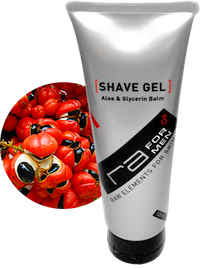What Acid Regulates the Water in our Skin?

There are a number of acids that are actually good for our skin, most of which exfoliate (get rid of dead cells and stimulate cell renewal), but there is one that helps keep our skin hydrated.
That acid is hyaluronic acid. It is one of the most important components in our cellular make up. Not only is it found in the skin, but also the cartilage and the clear protective gel in our eyes (aka the vitreous humor). Needless to say, it is essential.
Going one level deeper, L-sodium hyaluronate is the purest form of hyaluronic acid (HA), and one of its most important biological functions is water retention. It also ushers nutrients in and carries waste out from cells that do not have a direct blood supply, but its amazingness doesn’t end there.
What It Is
L-sodium hyaluronate (a.k.a. hyaluronic acid) is an essential water-regulating molecule, binding up to 6,000 times its weight in water. Pretty strong right? It prevents water loss in our skin, plumps it up (which helps reduce the appearance of wrinkles and fine lines) and keeps skin hydrated.
Hyaluronic acid is a major component of skin and primary part of cartilage where it provides a coat around each cell. In the skin it plays a key role in tissue repair, aids in wound healing and is a free-radical scavenger, meaning it wards off the damaging elements that assault our skin daily.
In healthy, normal skin conditions HA is found in relatively high concentrations, but age and environmental elements can decrease its production. For example, when UV damage occurs the cells in the skin decrease the amount of hyaluronic acid produced and increase the rate of degradation.
How It Works
Hyaluronic acid promotes cell generation and increases the presence of retinoic acid, which increases skin hydration. It also increases collagen production (which keeps skin looking youthful) and normal skin function, and is critical to the structural integrity of our cells.
This amazing hydrator also helps other important ingredients penetrate deeper layers of the skin, but the life span of HA in the body is only one to three days. After that time period it degrades and is flushed out. It requires constant replenishing through skin care products and through foods like avocados, peppers and certain spices.
Since hyaluronic is a powerhouse source of hydration, we use it in our Shave Gel to help prevent dehydration and skin irritation, which many of us are all too familiar with when it comes to daily shaving. If you’ve ever experienced the discomfort of dry skin following a shave, you may want to give a hyaluronic acid-based shave gel a try. It’s easier, and far more effective at easing the discomfort, than walking around with a cool, wet cloth on your face all day.
